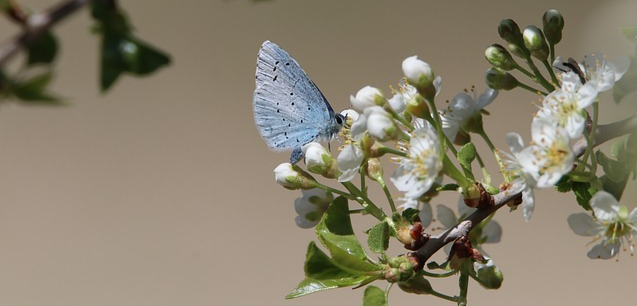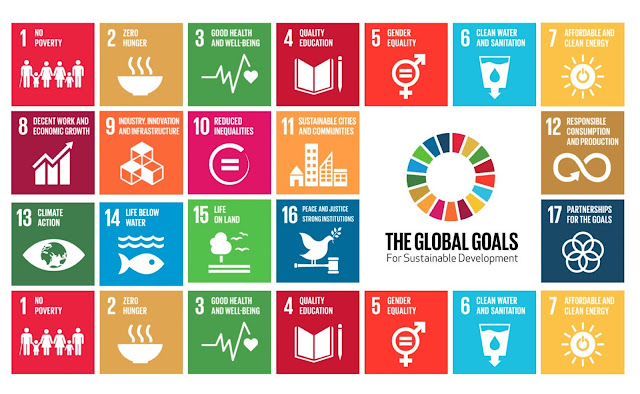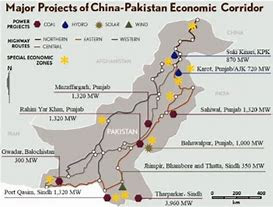Discover the importance of conserving biodiversity in Pakistan and the steps the nation can take to protect it. Learn how the government can support biodiversity conservation and how businesses can contribute. Explore the economic impact of conservation efforts and their potential contribution to the GDP of Pakistan.
1. Introduction
Biodiversity, the variety of life on Earth, is essential for maintaining the ecological balance and providing numerous benefits to humanity. It encompasses the diversity of species, ecosystems, and genetic variations within them. However, biodiversity is under threat due to human activities, such as habitat destruction, pollution, overexploitation, and climate change. Conserving biodiversity is not only crucial for the well-being of ecosystems but also for the sustainability of human societies. The recent adoption of a new global biodiversity framework in late 2022 has positioned nature at the forefront of political and business agendas worldwide. Recognizing the significance of biodiversity and ecosystems, it has become imperative for sustainable economic activities to prioritize their protection and restoration.
2. Understanding Biodiversity Conservation
Importance of Biodiversity
Biodiversity plays a fundamental role in maintaining ecosystem services, such as pollination, nutrient cycling, and climate regulation. It provides essential resources, including food, medicine, and raw materials for various industries. Preserving biodiversity is crucial for preserving the balance of nature and ensuring the long-term survival of human populations.
Threats to Biodiversity
Human activities pose significant threats to biodiversity. Deforestation, unsustainable land use practices, pollution, and climate change are driving species extinction and habitat degradation. To address these threats, proactive measures need to be taken at various levels.
3. Steps for Biodiversity Conservation in Pakistan
- Implementing strict legislation: Enacting and enforcing laws that protect biodiversity and regulate activities that harm ecosystems.
- Establishing protected areas and wildlife sanctuaries: Creating designated areas to safeguard biodiversity and provide habitats for endangered species.
- Promoting sustainable land use practices: Encouraging sustainable agriculture, forestry, and land management techniques that minimize negative impacts on biodiversity.
- Encouraging community involvement: Engaging local communities in conservation efforts, recognizing their role as stewardship (a land trust form of arrangement), and promoting sustainable livelihoods.
- Supporting indigenous knowledge and practices: Recognizing and integrating indigenous knowledge and practices that have sustained biodiversity for generations.
- Regulating wildlife trade: Implementing strict regulations on the trade of endangered species and their products to prevent illegal trafficking.
- Addressing pollution and waste management: Implementing effective waste management systems and reducing pollution to protect ecosystems and aquatic life. (Water Pollution: Causes, Effects, and Effective Solutions for a Cleaner Environment).
- Enhancing environmental education and awareness: Promoting environmental education in schools and raising awareness among the general public about the importance of biodiversity conservation.
- Investing in research and monitoring: Supporting scientific research and monitoring programs to assess the status of biodiversity and track conservation efforts.
- Collaborating with international organizations: Collaborating with international organizations to exchange knowledge, technology, and best practices in biodiversity conservation.
- Integrating biodiversity into urban planning: Incorporating biodiversity considerations into urban planning processes to create green spaces and wildlife corridors within cities.
- Supporting sustainable agriculture: Encouraging sustainable farming practices that minimize the use of pesticides, protect pollinators, and maintain soil health.
- Preserving freshwater ecosystems: Protecting and restoring freshwater ecosystems, such as rivers, lakes, and wetlands, which support a high diversity of species and provide crucial water resources.
4. Government’s Role in Biodiversity Conservation
The government plays a vital role in promoting biodiversity conservation through various measures:
- Policy formulation and implementation: Developing comprehensive policies and strategies for biodiversity conservation and ensuring their effective implementation.
- Allocating sufficient funds and resources: Allocating adequate financial resources to support conservation initiatives and enhance the capacity of relevant institutions.
- Strengthening enforcement mechanisms: Enhancing enforcement of environmental laws and regulations to combat illegal activities that harm biodiversity.
- Engaging stakeholders and local communities: Facilitating the participation of stakeholders, including local communities, in decision-making processes and promoting their involvement in conservation efforts.
*Read more about how Imran Khan took steps to conserve biodiversity and introduced the Billion Tree Tsunami Project. (Imran Khan’s Efforts to Address Climate Change in Pakistan).
5. Business Opportunities in Biodiversity Conservation
Conserving biodiversity not only benefits the environment but also presents opportunities for businesses:
- Ecosystem services and their value: Recognizing the importance of ecosystem services, such as clean water, air purification, and climate regulation, and integrating them into business models.
- Eco-Tourism Companies: Biodiversity conservation attracts nature enthusiasts and eco-tourists who seek to explore diverse ecosystems, leading to increased revenue for tour operators, accommodations, and local businesses.
- Environmental Consultancies: Consulting firms specializing in biodiversity assessments, environmental impact studies, and ecological restoration play a crucial role in advising businesses on how to integrate biodiversity conservation into their operations.
- Nature-based solutions for businesses: Implementing nature-based solutions, such as green infrastructure and sustainable supply chains, to minimise environmental impacts and enhance brand reputation.
- Fashion and Textile Industry: Sustainable fashion brands that prioritize biodiversity conservation by using organic materials, supporting sustainable supply chains, and avoiding materials derived from endangered species can appeal to conscious consumers.
- Pharmaceutical Industry: Biodiversity provides a vast array of plant and animal species with potential medicinal properties. By investing in biodiversity conservation, pharmaceutical companies can discover new drugs and ingredients for their products.
- Corporate social responsibility: Embracing corporate social responsibility by supporting biodiversity conservation projects and engaging in sustainable practices.
- Green certifications and labels: Obtaining green certificates and labels that demonstrate commitment to biodiversity conservation, attracting environmentally conscious consumers.
It is important to note that these are just a few examples, and biodiversity conservation can have positive implications for a wide range of industries.
6. Economic Impact of Biodiversity Conservation
Biodiversity conservation can have significant economic benefits for Pakistan:
- Contribution to GDP: Protecting and sustainably utilizing biodiversity can contribute to economic growth, particularly through sectors such as tourism, agriculture, and pharmaceuticals.
- Job creation: Conservation efforts can generate employment opportunities, especially in ecotourism, wildlife management, and sustainable agriculture.
- Sustainable development: Biodiversity conservation is closely linked to sustainable development, as it ensures the long-term availability of natural resources and ecosystem services.
7. Conclusion
Conserving biodiversity is a shared responsibility that requires collaboration between governments, businesses, communities, and individuals. By implementing the suggested steps for biodiversity conservation in Pakistan, we can protect our unique ecosystems, support sustainable development, and secure a better future for generations. Embracing biodiversity conservation as a nation and a business, not only safeguards the environment but unlocks new opportunities for economic growth and sustainable development.
FAQs
- What is biodiversity conservation? Biodiversity conservation refers to the protection and management of species, ecosystems, and genetic variations to ensure their long-term survival and sustainable use.
- Why is biodiversity conservation important? Biodiversity conservation is vital for maintaining ecological balance, preserving ecosystem services, and sustaining human well-being. It also contributes to the resilience of ecosystems in the face of climate change.
- How can individuals contribute to biodiversity conservation? Individuals can contribute to biodiversity conservation by supporting sustainable practices, reducing their ecological footprint, volunteering for conservation projects, and advocating for stronger environmental policies.
- How does biodiversity conservation benefit businesses? Biodiversity conservation presents business opportunities through ecosystem services, nature-based solutions, and corporate social responsibility, which can enhance brand reputation, attract environmentally conscious consumers, and drive sustainable growth.
- How does biodiversity conservation contribute to the GDP of Pakistan? Conserving biodiversity can contribute to Pakistan\’s GDP through sectors such as tourism, agriculture, and pharmaceuticals, which rely on healthy ecosystems and sustainable use of natural resources.











One Comment